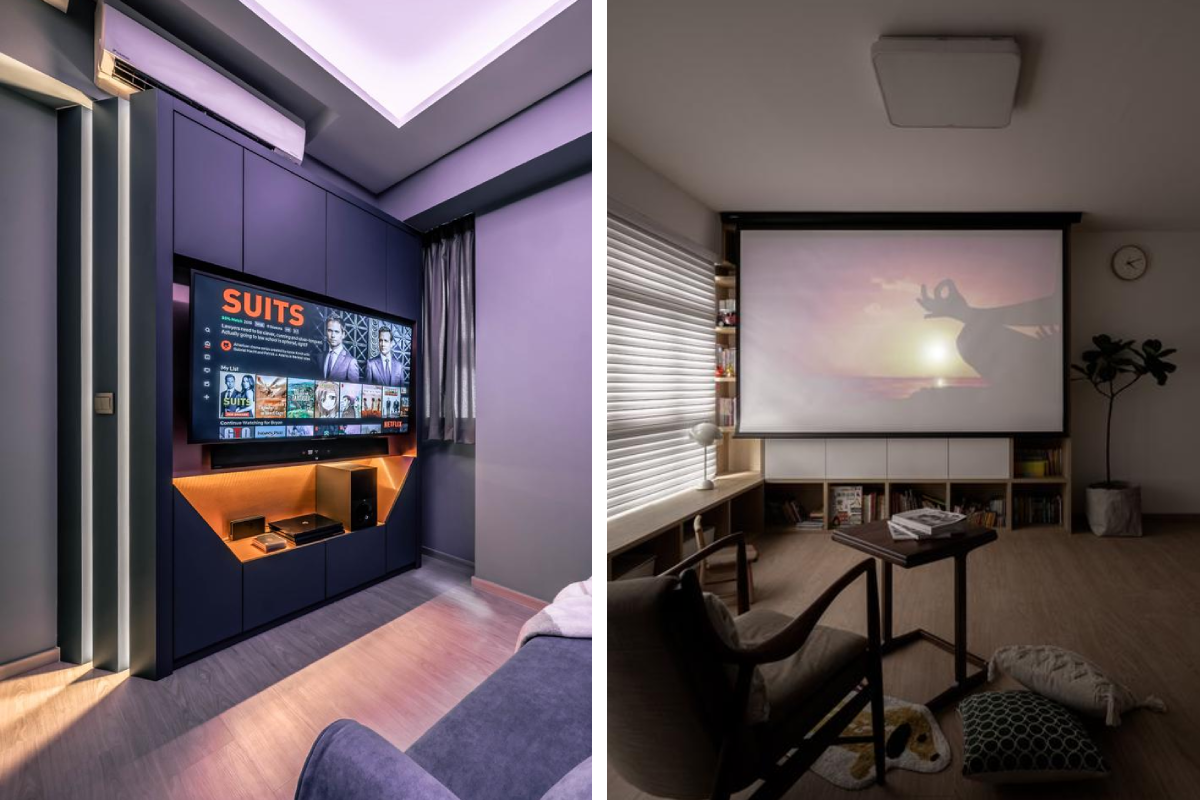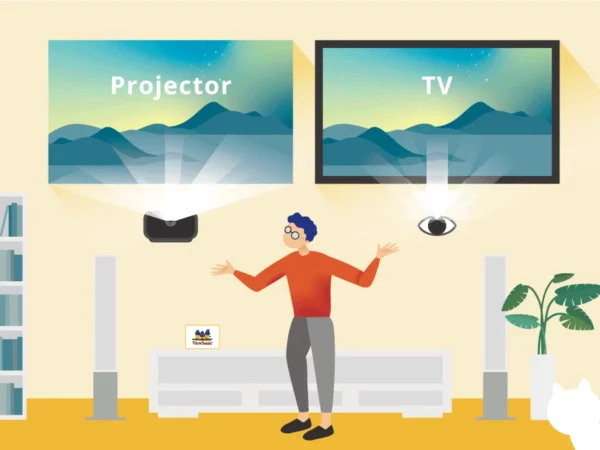Are you confused about which is better projector or TV?
Projectors and TVs are two popular options for home entertainment systems, each offering unique advantages and features. Projectors utilize light to display images and videos on a large screen, typically on a blank wall or a dedicated projection screen. On the other hand, TVs are self-contained display devices with built-in screens, offering high-resolution images and a wide range of features.
The question of whether projectors are better than TVs is a common debate among home theater enthusiasts and consumers looking to enhance their viewing experience. While both options have their merits, understanding the differences and assessing individual needs is essential in making an informed decision.
The purpose of this blog post is to explore the advantages and considerations of projectors and TVs, allowing readers to evaluate which option aligns better with their preferences and requirements. By examining factors such as screen size, image quality, versatility, cost-effectiveness, and usage scenarios, this blog aims to provide readers with a comprehensive understanding of the pros and cons of projectors and TVs. Ultimately, the goal is to assist readers in making an educated decision based on their specific needs, budget, and viewing environment.
Throughout the blog, we will delve into various aspects of projectors and TVs, comparing their features, performance, and suitability for different applications. By considering the advantages and limitations of each option, readers will gain valuable insights to help them determine which option, projectors or TVs, better meets their expectations and enhances their overall viewing experience.
Projectors and TVs

Projectors are devices that project images or videos onto a screen or surface. They use light sources, such as lamps or LEDs, to illuminate the content and display it on a larger scale. Projectors offer the flexibility to adjust screen size and aspect ratio based on the projection distance. They are commonly used for home theaters, presentations, and large-scale events.
Televisions, or TVs, are self-contained devices with built-in screens that display images and videos. They use various display technologies, such as LCD, OLED, or QLED, to produce high-quality visuals. TVs are designed for direct viewing and are available in a wide range of sizes and resolutions. They often include additional features like built-in speakers, smart functionality, and connectivity options.
When comparing projectors and TVs, several factors come into play. Resolution determines the level of detail, with TVs typically offering higher resolutions like 4K or 8K, while projectors can range from standard HD to 4K. Brightness is crucial for visibility, where projectors often require dimmer environments, while TVs excel in well-lit rooms. Contrast ratio impacts image depth and clarity, with TVs generally offering superior contrast. Other factors to consider include color accuracy, viewing angles, and response times, where TVs tend to have an edge due to their advanced display technologies.
Advantages of Projectors
- Projectors offer a large screen size, creating a more immersive viewing experience that can replicate the feeling of a theater.
- They provide flexibility in screen size and aspect ratio, allowing users to adjust the projection to fit their preferences and the available space.
- Projectors are cost-effective for larger screen sizes compared to TVs, as the price per inch of screen real estate tends to be lower.
- They are portable and easy to install, making it convenient to set up a projection system in different locations or move it between rooms.
Advantages of TVs
- Superior image quality and display technology
- Wide range of available features (smart functionality, HDR, etc.)
- Better performance in well-lit environments
- Convenience and ease of use
Factors to Consider When Choosing Between Projectors and TVs
Viewing environment and space limitations:
Consider the characteristics of your viewing environment, such as the size and layout of the room, ambient lighting conditions, and available wall or ceiling space for mounting a projector. TVs are more suitable for smaller rooms or well-lit areas, while projectors offer flexibility in adapting to various spaces.
Intended usage:
Identify your primary use for the display. If you’re setting up a dedicated home theater, a projector can provide a more immersive cinematic experience. For gaming or presentations, consider factors like input lag, refresh rate, and connectivity options. TVs are often better suited for casual viewing or gaming in brightly lit environments.
Budget considerations:
Take into account your budget constraints. Generally, projectors tend to be more cost-effective for larger screen sizes, but the initial investment may include additional expenses for screens, mounting hardware, and audio systems. TVs, while typically more expensive for larger sizes, may offer a better value proposition with their built-in features.
Maintenance and lifespan:
Consider the maintenance requirements and lifespan of both options. Projectors may require lamp replacements after a certain number of hours, whereas TVs have longer lifespans and lower maintenance needs. Assess the long-term costs and convenience associated with maintaining and upgrading the chosen display solution.
Case Studies and Real-World Examples
Explore real-world examples of projector and TV setups in various scenarios, such as home theaters, gaming rooms, or office presentations. Compare factors like screen size, image quality, viewing experience, and overall setup requirements. Provide insights into how each option performs in different environments and use cases, helping readers understand the practical implications of choosing projectors or TVs.
Include testimonials or quotes from individuals who have firsthand experience with projectors or TVs and share their perspectives on why they prefer one over the other. These testimonials can provide valuable insights into specific preferences, benefits, and drawbacks of projectors and TVs from the user’s point of view. By including a range of testimonials, readers can gain different perspectives and make more informed decisions based on real user experiences.
Conclusion about TVs vs projectors.
We have examined the main points regarding projectors and TVs. We discussed the advantages of projectors, such as their large screen size, flexibility in screen size and aspect ratio, cost-effectiveness for larger screen sizes, and portability. Additionally, we highlighted the strengths of TVs, including superior image quality, a wide range of features, better performance in well-lit environments, and convenience.
It is important to emphasize that the choice between projectors and TVs ultimately depends on personal preferences and individual needs. Factors such as viewing environment, intended usage, budget considerations, and maintenance requirements should be carefully considered. There is no definitive answer as to which one is better, as it varies based on the specific requirements and preferences of each individual.
If you are planning to mount your TV or projector in your home, just remember Home Tech Geeks, we will be happy to assist you.

